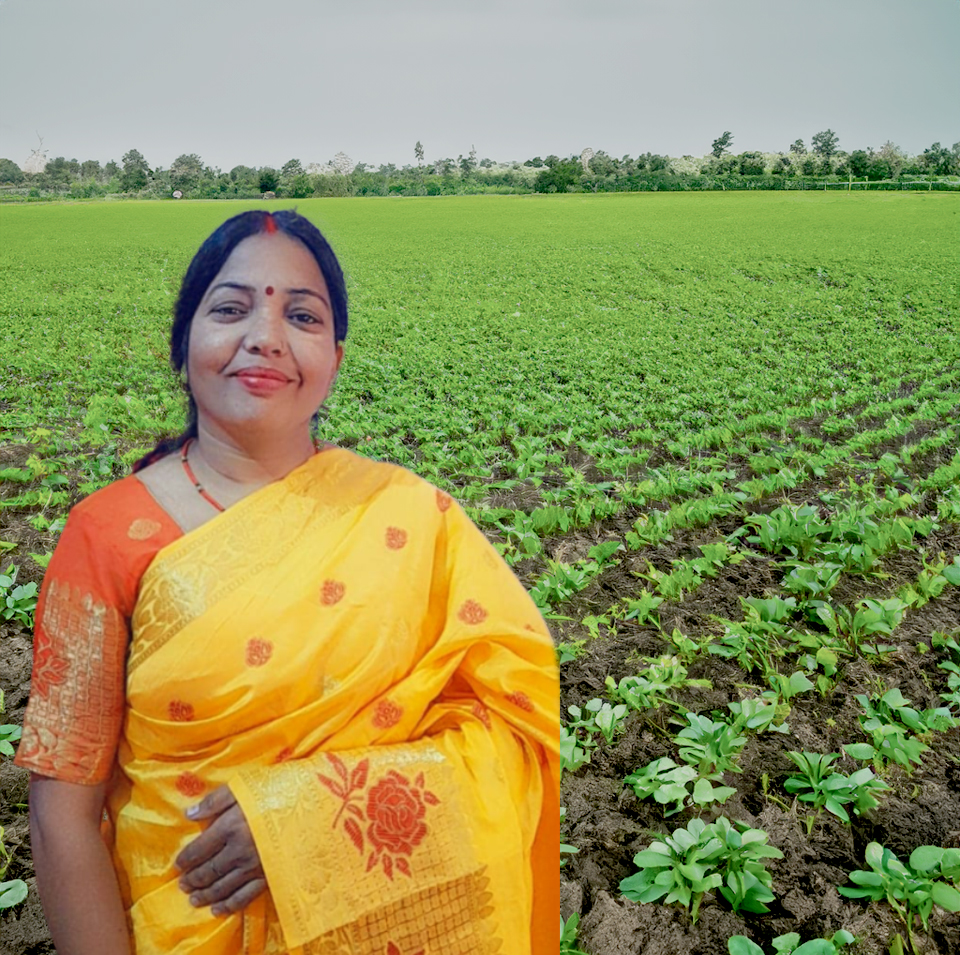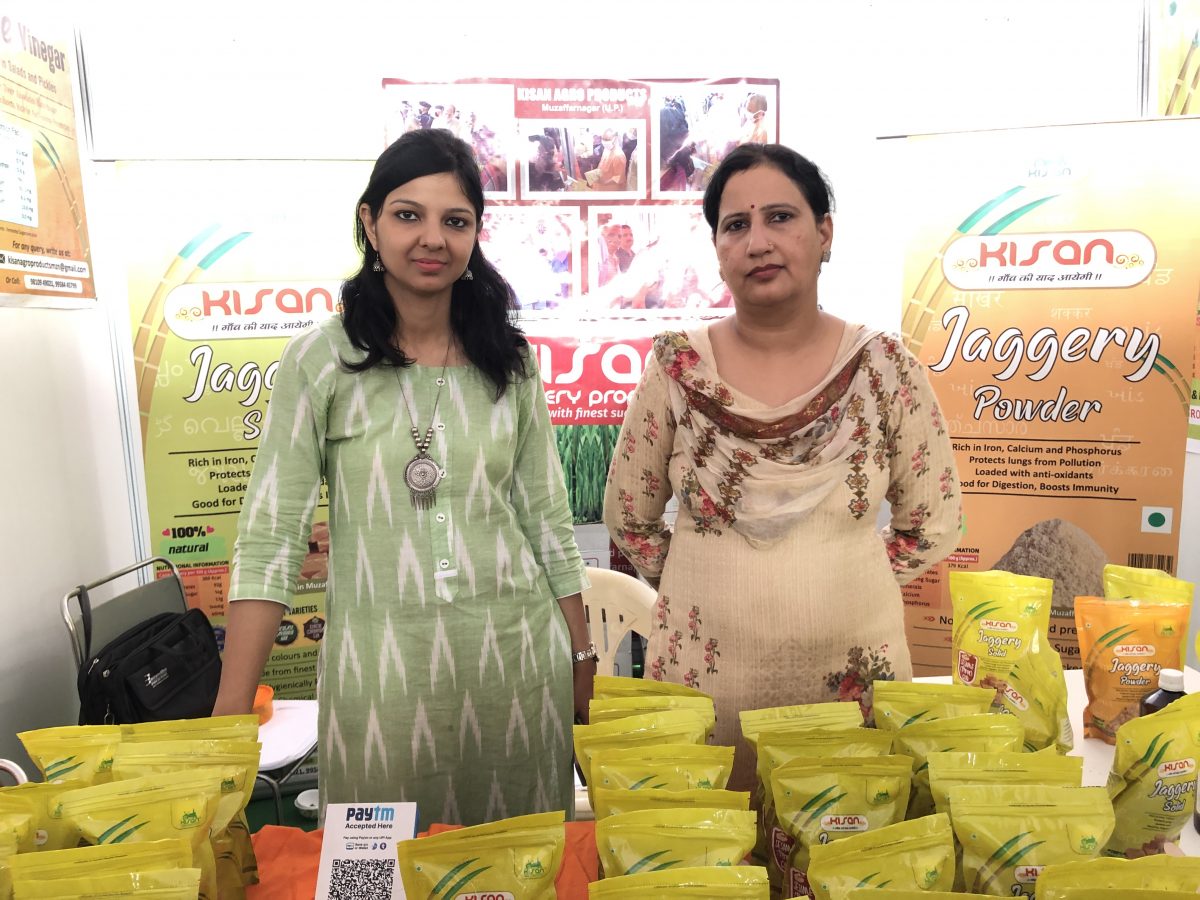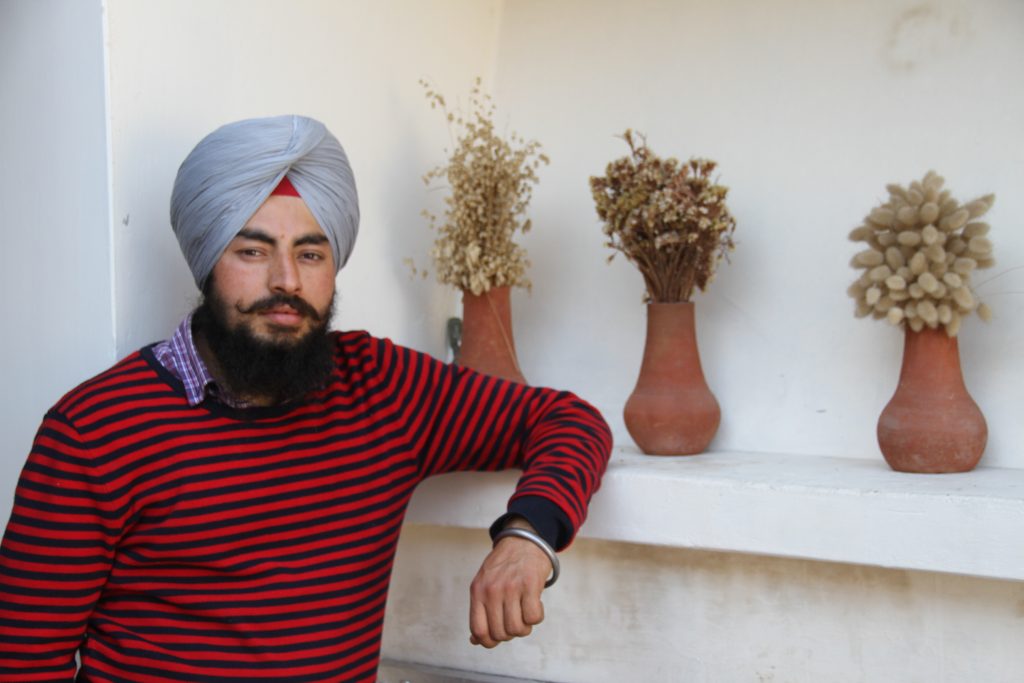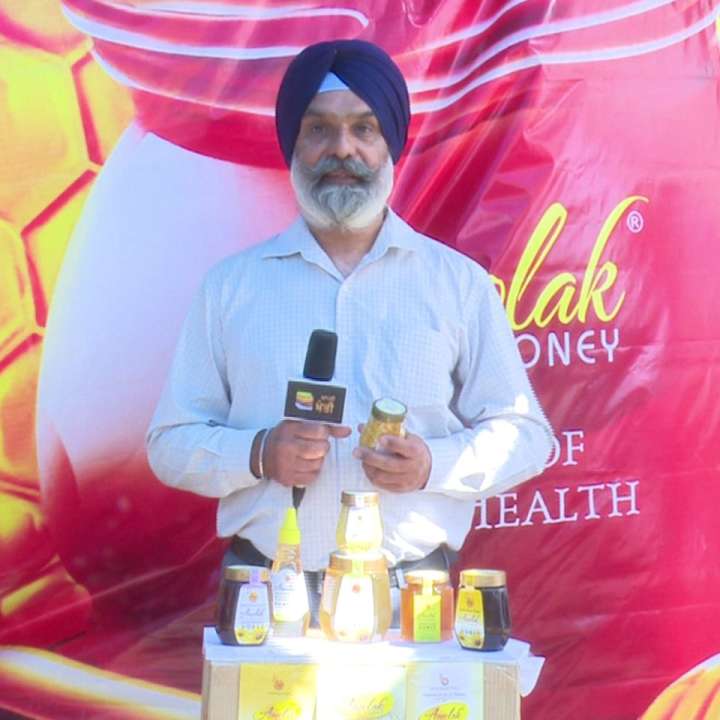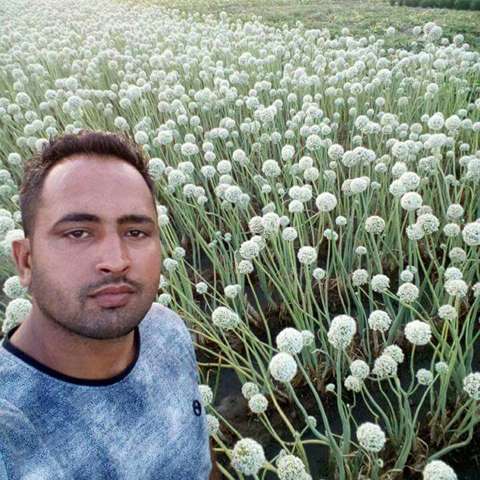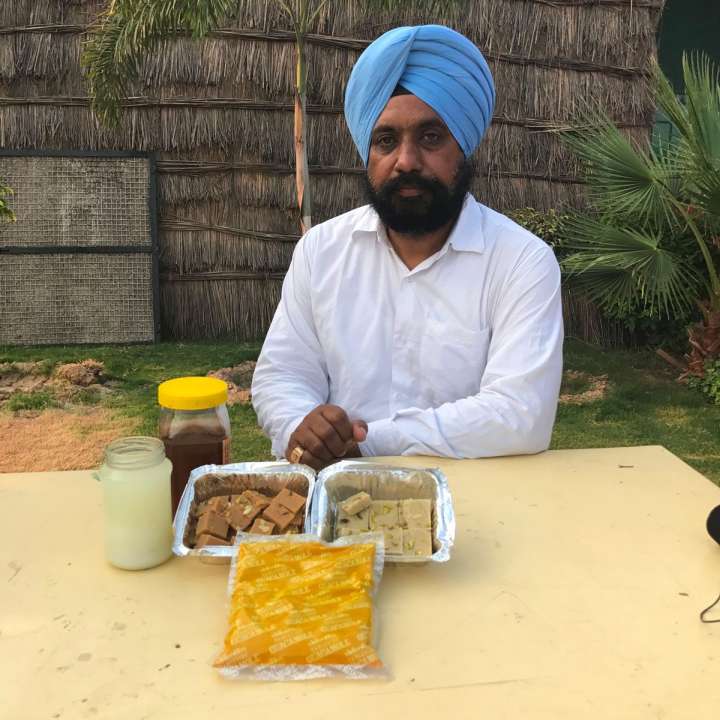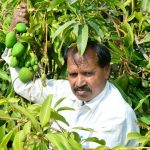The Inspiring Journey of Smt. Naina Kumari from Farmer to Visionary Khetipreneur
Smt. Naina Kumari, a trailblazing entrepreneur from Bhagalpur, Bihar, has revolutionized the agricultural landscape with her dedication to mechanized processing of cereals, pulses, spices, mushrooms, jaggery, and mangoes. Her adoption of cutting-edge machinery has not only minimized wastage but also significantly increased profits, marking a transformative journey from a traditional farmer to a visionary khetipreneur. Naina’s innovative approach and commitment to modernizing agricultural practices have not only benefited her community but have also set a remarkable example for sustainable and profitable farming in the region.
Naina Kumari’s established the Farmers’ Producer Organization (FPO) named ‘Vikramshila Gram Udyog.’ under the brand name ‘Shree,’ she sells a diverse range of processed items, including semolina, spices, papad, chips, mushroom, mango pickles, and jaggery. The brand has become a household name, resonating not just across India but also attracting attention from international markets.
Embracing the digital age, Naina Kumari has seamlessly integrated the online mode for selling her high-quality processed produce. This strategic move has not only expanded her market reach but has also positioned ‘Shree’ as a prominent player in the e-commerce space for agricultural products. The shift to online sales has been a game-changer, providing convenience to customers and opening up new avenues for growth.
Beyond her success in processing various agricultural products, Smt. Naina Kumari is also diversifying her income streams through fish rearing and dairying. This multifaceted approach not only adds to her financial stability but also showcases her versatility as an khetipreneur willing to explore and innovate in different domains of agriculture.
Naina’s inspiring journey from a local farmer to a nationally recognized entrepreneur has been widely covered by newspapers and social media channels. Her story serves as a beacon of hope and motivation, not only for aspiring khetipreneurs but for women in Bihar and beyond. The accolades she has received, such as the ‘Mahila Udyami Samman’ and the ‘Utkrisht Kisan Puruskar,’ stand as a proof of her tireless efforts in food processing and uplifting the livelihoods of fellow farmers.
What makes Naina Kumari’s story even more remarkable is the profound impact she has had on her community. Through her FPO, she trains local women, empowering them with the skills needed for khetipreneurship. By doing so, she not only boosts their incomes but also contributes to the economic upliftment of the entire community. The ripple effect of Naina’s initiatives has enhanced the market presence of these women, turning them into self-reliant contributors to the agricultural sector.
Naina’s commitment to empowering women in agriculture goes beyond the boundaries of her own success. She has become a beacon of inspiration, breaking stereotypes and proving that women can thrive in traditionally male-dominated sectors. Her recognition for the ‘Mahila Udyami Samman’ underscores the importance of acknowledging and celebrating the achievements of women in entrepreneurship.
The journey from local markets to a broader market presence is a an example of Naina’s determination and strategic vision. Once faced with skepticism, she has now become a symbol of success, with those who once doubted her abilities now eager to collaborate with her. This shift in perception highlights not only the resilience of Naina Kumari but also the transformative power of embracing innovation in agriculture.
Naina’s success story has been notably recognized at different farmer fairs, where her stalls have received accolades for being the best. The prestigious ‘Utkrisht Kisan Award 2021’ further cements her status as a pioneer in the agricultural sector. Her dedication to quality, innovation, and community development sets a shining example for the entire farming community.
In conclusion, Smt. Naina Kumari’s journey from a traditional farmer to a celebrated khetipreneur is a remarkable example of the transformative power of innovation in agriculture. Her commitment to mechanized processing, online sales, and community empowerment has not only brought her personal success but has also positioned her as a role model for aspiring entrepreneurs, especially women, in Bihar and beyond. Naina Kumari’s story is a attestation to the potential for growth and success when traditional practices meet visionary entrepreneurship in the agricultural sector.


